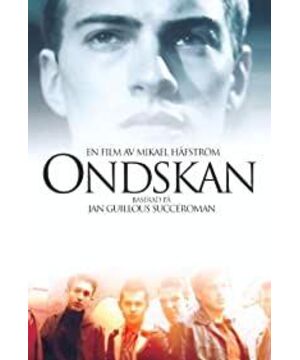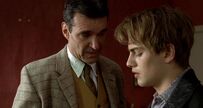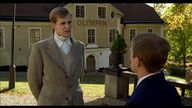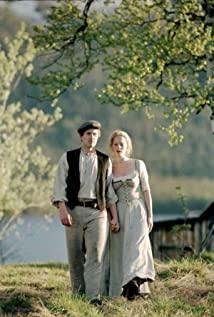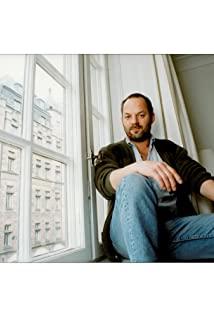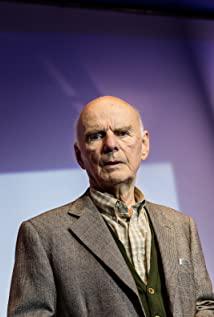"Evil" vs "Four Hundred Blows"
"Four Hundred Blows" is a famous work by French New Wave director Chu Fu, filmed in 1959. The story tells the story of a young boy who is placed in an indifferent, rigid and harsh family, school and society. , was regarded as a stubborn and hopeless bad element because of his rebellious character, and finally he could only start a long escape, escaping the oppression of his family, school and society alone. Similarly, Four Hundred Strikes is based on Chufu’s childhood experiences, and Evil is based on the autobiographical novel of the same name by the best-selling Swedish novelist Jankulu, set in the post-Nazi period of the 1950s. Times, tells the story of a teenager who learned to deal with problems with violence from a repressed and violent family. When he entered a private boarding school and tried to integrate into the environment in a patient way, the bullying from his seniors forced him to nowhere. .
The little boy in "Four Hundred Blows" can be free only by escaping, so there is the world-famous "Long Escape" at the end of the film. The long road, constantly running forward, and running all the way to the uninhabited seaside, only showed a happy smile to the camera. The boy in "Evil" didn't run away. He was older than the little boy and knew that no matter how fast or far he ran, he couldn't escape from society. He also knew that true freedom must be obtained by defeating the enemy, and not only It is to defeat the enemy with a pair of fists to obtain a short-term victory, but also to seize the weakness of the enemy, so that the enemy will not dare to resist even if he is hurt, and let himself squeeze to the top of the tower of power to gain permanent freedom. So he took advantage of the senior's fear of death threats, the principal's fear of ruining the school's reputation, and his stepfather's fear of a broken image, stepping on them one by one, transforming himself from the oppressed into the oppressor. At the end of the film, the teenager is riding a bicycle, facing the wind, and smiling brightly at the camera. His freedom is not only to run out with one pair of feet, he has better tools and better methods, so he can laugh bigger and bigger Long.
"Evil" vs "White Ribbon" and "The Tide"
aside from the story of how to be free from oppression, there is another interesting point about "Evil". In the film, the so-called "evil" actually has two meanings. The first meaning is that the protagonist grows from a simple bad, from a teenager who can only use violence to overcome violence, to a high-level evil, a person who knows how to use evil to overcome evil, Adults who counter oppression with the unspoken rules of society. Another level of significance is how a private residential school grows out of a purely academic environment, an evil mechanism full of violence and oppression. And this layer of meaning echoes very well with the other two German films, and completely explains how the German Nazis, an extremely evil group, was born.
"White Ribbon" tells the story of a village in northern Germany before World War II. This is a closed and repressed village. Parents teach their children with absolute authority and corporal punishment, requiring them to unconditionally adhere to various moral codes. However, in the world of adults, there are various acts of immorality. Adultery, incest, and class oppression are hidden in the peaceful daily life. So the children rallied to punish the guilty adults in the violent ways they had learned, even extending the punishment to the innocent children of these adults. The seeds of evil come from strict demands on discipline and silent acquiescence to corporal punishment.
"Wave" tells about a real high school campus event in the 1960s. A teacher teaching totalitarianism courses, in order to let students understand the process of the formation of totalitarianism, organized the class into an organization called "Waves" in the name of experiment, and implemented it. Centralized management model. In the process of students designing badges, uniforms and regulations for the organization, a sense of belonging and peer identification arises spontaneously, and an experimental loose student activity gradually evolves into a solid organization with a sense of honor, loyalty, and high unity , any words and actions that are not conducive to the unity of the organization are not allowed inside and outside the organization, and this frenzy eventually turned into a serious school shooting incident. The flowers of evil grow in the good sentiments of loyalty and solidarity.
"Evil" tells a story of the post-Nazi era in Europe in the 1950s. The boarding school where the protagonist attends implements a strict class system, and ordinary employees cannot take the initiative to speak to teachers and students. The seats at mealtime are divided according to family status and financial resources, and the dormitory beds are It is arranged according to the order of admission. The most important thing is that the junior must be respectful to the senior. No matter how unreasonable the senior asks, the junior must follow it, otherwise the senior can punish the junior at will. For this unreasonable system of the school, some teachers do not know, some teachers know but are unable to stop, some teachers know and support, especially the principal, he believes that this strict system is conducive to establishing rules for students, It also helps with school management.
When the protagonist first entered school, the president of the student council showed him a friendly tour of the campus, without any pre-set position of bullying and oppressing him. However, the protagonist's disapproval of the campus class system and his refusal to bow his head to the seniors made things gradually to extremes. From the standpoint of the student council president, it is necessary to maintain the existing class discipline. No matter whether the request is reasonable or not, or whether the senior oppresses the junior, as long as one person does not obey the discipline, the others will start to flout the discipline, and then the entire organization, All disciplines are subject to collapse, so the protagonist must be made to play by the rules of the game at all costs. As a result, with the continuous resistance of the protagonist, the oppression and rectification actions became more and more intense, and finally went to a life-and-death situation. The fruits of evil come from prioritizing great relationships, sacrificing dedication to the ego, and absolute advocacy for the greater.
What is evil? Some people are born evil, while others are oppressed by family, school and society and grow into evil, but the most extreme evil is often because of absolute support for discipline, organization, and self. When these beautiful virtues meet The right soil will produce wicked flowers and wicked fruits. The German nation has been known for its strict discipline since the iron-blooded chancellor Bismarck. After the First World War, the strict compensation clauses plunged the whole of Germany into a miserable situation, which made them gather a high sense of unity, and let them under Hitler's rallying cry, Feel a powerful feeling against bullying. And this kind of good feeling comes from the organization and discipline of the Nazis, so no matter how things go to the point of nonsense later, everyone must move forward more decisively, no matter the cost or sacrifice, let the organization and discipline Continue on until everything collapses and perishes.
What is evil? Absolute support for a person, a belief, a group is evil. The most extreme evil in the world is mostly under the banner of justice. What can conquer evil? Of course it is justice, but the so-called justice is actually just another form of evil.
View more about Evil reviews


